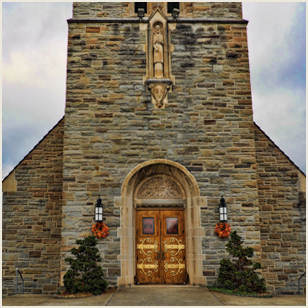John of the Cross (1542-1591), Page: Quotes, Quote Author, Quote Topic, Struggle (with Sin)
Darkness and coarseness will always be with a soul until its appetites are extinguished. The appetites are like a cataract on the eye or specks of dust in it; until removed they obstruct vision…The affections and appetites deprive them of a treasure of divine light. Any appetite, even one that is but slightly imperfect, stains and defiles the soul.
–Saint John of the Cross (1542-1591)
John of the Cross (1542-1591), Page: Quotes, Quote Author, Quote Topic, Silence
Carve out a day every week, or an hour a day, or a moment each hour, and abide in loving silence with the Friend. Feel the frenetic concerns of life in the world fall away, like the last leaves of autumn being lifted from the tree in the arms of a zephyr. Be the bare tree.
–Saint John of the Cross (1542-1591)
John of the Cross (1542-1591), Page: Quotes, Quote Author, Quote Topic, Spiritual (life), Suffering
Would that men might come at last to see that it is quite impossible to reach the thicket of the riches and wisdom of God except by first entering the thicket of much suffering, in such a way that the soul finds there its consolation and desire. The soul that longs for divine wisdom chooses first, and in truth, to enter the thicket of the cross.
–Saint John of the Cross (1542-1591)
John of the Cross (1542-1591), Page: Quotes
Though holy doctors have uncovered many mysteries and wonders, and devout souls have understood them in this earthly condition of ours, yet the greater part still remains to be unfolded by them, and even to be understood by them. We must then dig deeply in Christ. He is like a rich mine with many pockets containing treasures: however deep we dig we will never find their end or their limit. Indeed, in every pocket new seams of fresh riches are discovered on all sides…
–Saint John of the Cross (1542-1591)
John of the Cross (1542-1591), Page: Quotes, Prayer (problems), Quote Author, Quote Topic, Spiritual (life)
We may say that there are three reasons for which this journey made by the soul to union with God is called night. The first has to do with the point from which the soul goes forth, for it has gradually to deprive itself of desire for all the worldly things which it possessed, by denying them to itself; the which denial and deprivation are, as it were, night to all the senses of man. The second reason has to do with the mean, or the road along which the soul must travel to this union — that is, faith, which is likewise as dark as night to the understanding. The third has to do with the point to which it travels — namely, God, Who, equally, is dark night to the soul in this life. These three nights must pass through the soul — or, rather, the soul must pass through them — in order that it may come to Divine union with God… And, when this third night is past, which is the complete accomplishment of the communication of God in the spirit, which is ordinarily wrought in great darkness of the soul, there then follows its union with the Bride, which is the Wisdom of God.
–Saint John of the Cross (1542-1591)

